| Tags | design and inspiration fun and interesting cleaning and maintenance garden bridge guide great outdoors guide children seating show all posts |
Top Ways To Enjoy Your Garden During Allergy Season
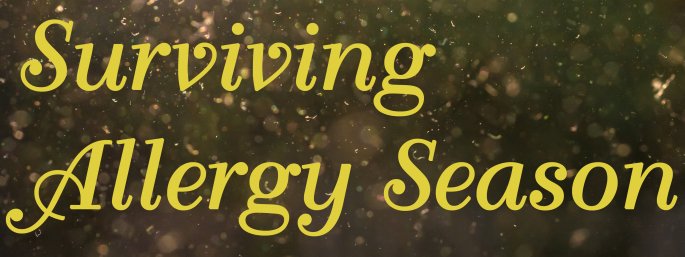
Allergies are not fun, and I can definitely vouch for that! As soon as the Summer season hits, you start losing things under piles of tissues. Running nose, eyes watering, itchy eyes, nose and even skin and don't forget the constant fatigue! You find yourself looking at people out in their garden enjoying the fresh air, barbeques and gardening, while you are stuck indoors trying to find a happy medium between closing all of your windows and doors and boiling to death, or risking the wrath of pollen.
For those of you who enjoy being in the garden but worry about getting defeated by the grass and flowers, never fear! We have come up with some top tips and handy hints to help you through. So here goes:
Our Top Ways To Enjoy Your Garden During Allergy Season
1. Ditch The Grass
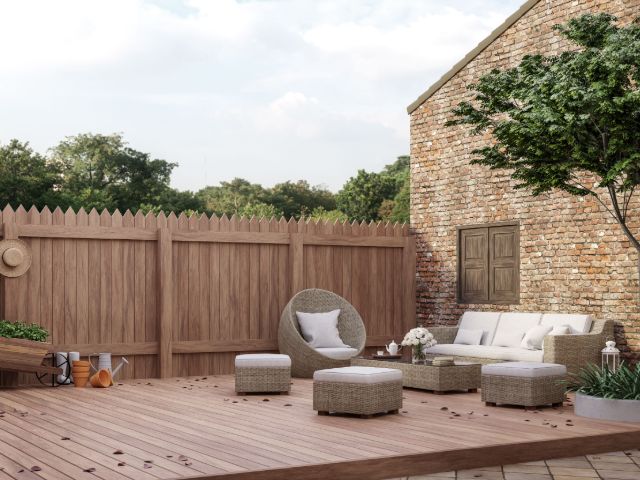
A garden can still be beautiful without grass, so why not opt for a modern and minimalistic approach to your garden. Incorporate some decking, a patio or artificial grass to keep production of pollen to a minimum. But if you do have grass, try to keep it thick, that way, it will trap pollen rather than letting it fly around in the air
TOP TIP: If you have grass, spray it with water before you spend time in your garden. This will prevent disturbance of the pollen meaning there will be less in the air around you.
2. Allergy Friendly Flowers
Who knew there were allergy friendly flowers out there!? Well now you do, so if you would like to add some colour and scents to your garden without causing a sneeze, go for it! We found this list of excellent examples, so why not take a look and plant something new today.
3. Avoid Hanging Clothes Outside
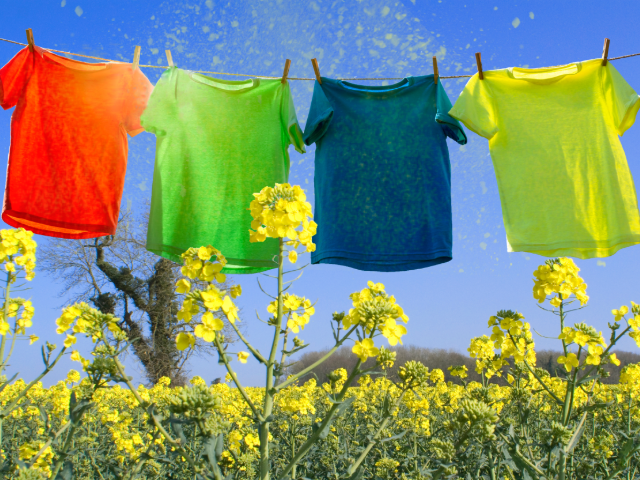
I know, I know, it's Summer! You want to be drying your clothes out on the washing line. It's quicker and it saves on electricity bills instead of using your dryer, but unfortunately it is one of the worst things to do if you suffer from hay fever as the pollen will attach like velcro which can lead to itchy skin, excessive sneezing and itchy eyes .... and I mean more than usual!
4. Avoid Going Outside
I know this one is easier said than done. You probably don't want to stay cooped up in your house on a brilliantly sunny day, but on high pollen days, staying indoors will ease your symptoms. If you absolutely do need/want to go out, try going to the seaside! Due to the strong winds and water, the pollen count tends to be much lower nearer the sea.
5. Keep On Top Of Your Weeds
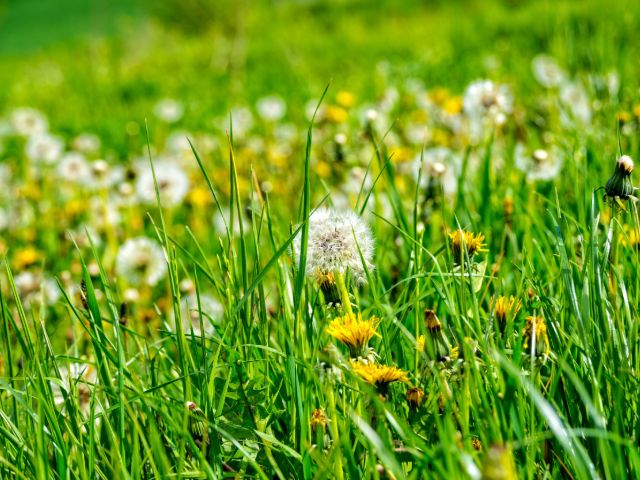
Most of the seasonal allergies come from grass, trees and weeds. So as well as trying to ditch the grass, remove those weeds too! Take special care with dandelions as these are the most common wind pollinating weeds.
6. Avoid Wind Pollinated Plants & Flowers
It is estimated that between 10% and 20% of plants are wind pollinated, so if you have any of these plants in your garden, you aren't doing yourself any favours. You can spot wind pollinated flowers as they are usually small and generally have:
- No petals
- No bright colours, nectar or noticeable smell
- Exposed stamens
- A lot of smooth, light pollen
7. Add Colour In Other Ways
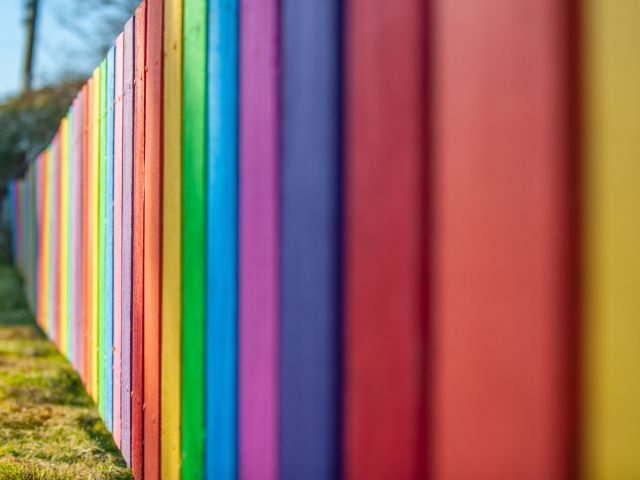
Flowers don't have to be the only colourful thing in your garden. Try brightening up your garden in other ways. Paint your fence in a bright colour, add in some colourful statues or get the kids to paint some plant pots and create your own garden sculpture.
8. Add In/Wipe Down Garden Furniture
If you haven't got any garden furniture in your garden, buy some! But do make sure to wipe it down before using it, especially in the Summer months when pollen is settling on surfaces. Vaccuum first, then give it a blast with some water, adding a few drop of dish washing detergent. Use a coarse sponge to scrub and then dry off with a soft cloth.
9. Wear a Hat
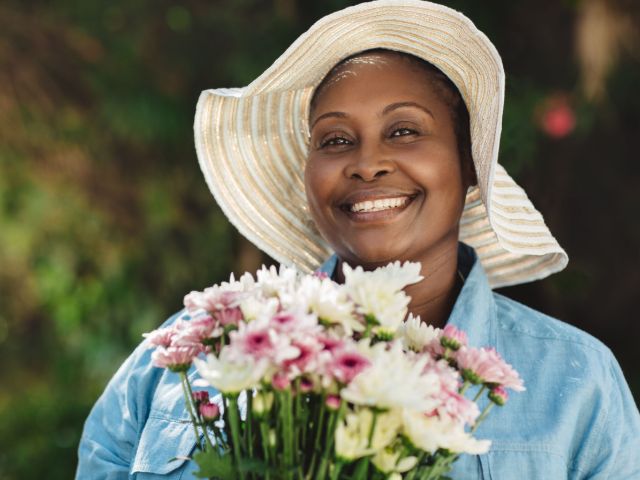
Wearing a sunhat can prevent pollen coming into contact with your hair which can help with an itchy head and face, and will also mean you don't need to wash your hair after you've been in the garden.
10. Shower & Change Your Clothes
After hanging out in the garden, make sure you shower and change your clothes. Pollen stays on clothes until you wash them, so try and wash yourself and your clothes as soon as you have finished outdoors.
11. Wear a Face Mask, Goggles and Gloves
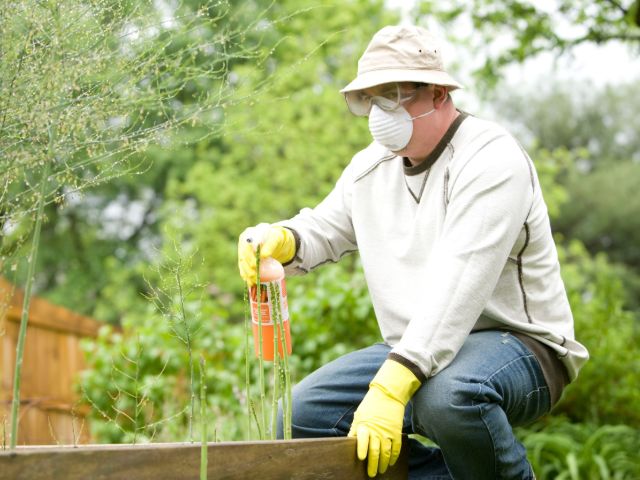
I know you're probably sick of wearing masks at this point but wearing a mask will prevent pollen getting up your nose and generally in your airways. The goggles will stop itchy eyes too, and gloves will prevent pollen getting into contact with your skin, and can also act as a deterrent for touching your face. Obviously you probably don't want to wear these while out and about, but wearing these while gardening is a good idea.
12. Dose Yourself Up
There are many medications out there for hay fever but it can be extremely difficult to find something which works, try one, or a combination of the below.
- Allergy Tablets - good for general hay fever, take these early on in the day as a preventative measure.
- Nasal Sprays - good for itchy nose and sneezing
- Eye drops - helpful with itchy eyes
- Nose filters - stop pollen making it's way up your nose
- Neti pot - these are helpful to cleanse your nose, getting rid of any pollen and impurities in your nose
- Haymax/Vaseline - Haymax is a balm with you can coat the outside of your nose with, it means your nose catches the pollen before it goes up your nostrils. Unfortunately, this can also result in itchiness around the nose and it needs reapplying every time you blow or wipe.
- Immunotherapy - As a last resort, you can ask your doctor for immunotherapy which involves giving you doses of an allergen and increasing the dosage each time with an aim to give you immunity.
TOP TIP: When using allergy tablets, try to alternate which ones you take each year, so that you do not become immune to them over time.
13. Install a Pond or Pool
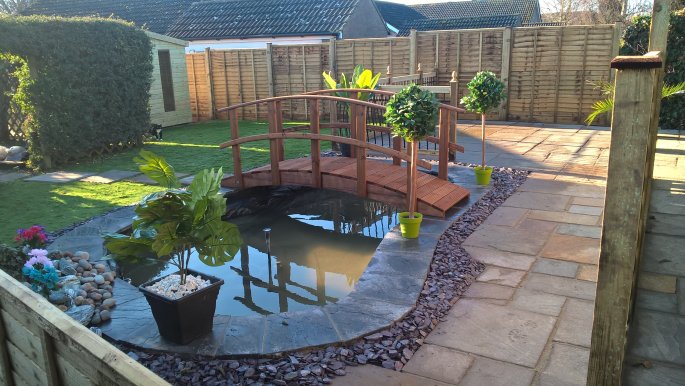
Ponds are a beautiful addition to a garden, and depending on how much space you have in your garden you can have a small or a large pond. They also help catch pollen, meaning less in the air, so why not?
14. Air Filtering Plants
There are many plants which have air filtering properties, some of which could be very helpful for allergies. A NASA study found that the best indoor plants for removing pollutants from the air are the Gerbera Daisy, Snake Plant and English Ivy. These air filtering plants can also help you feel more upbeat and happier, so you might as well get one to try.
Hopefully something on this list has given you an idea for how to cope with your allergies this Summer. Is there anything we've missed? Let us know down in the comments!
